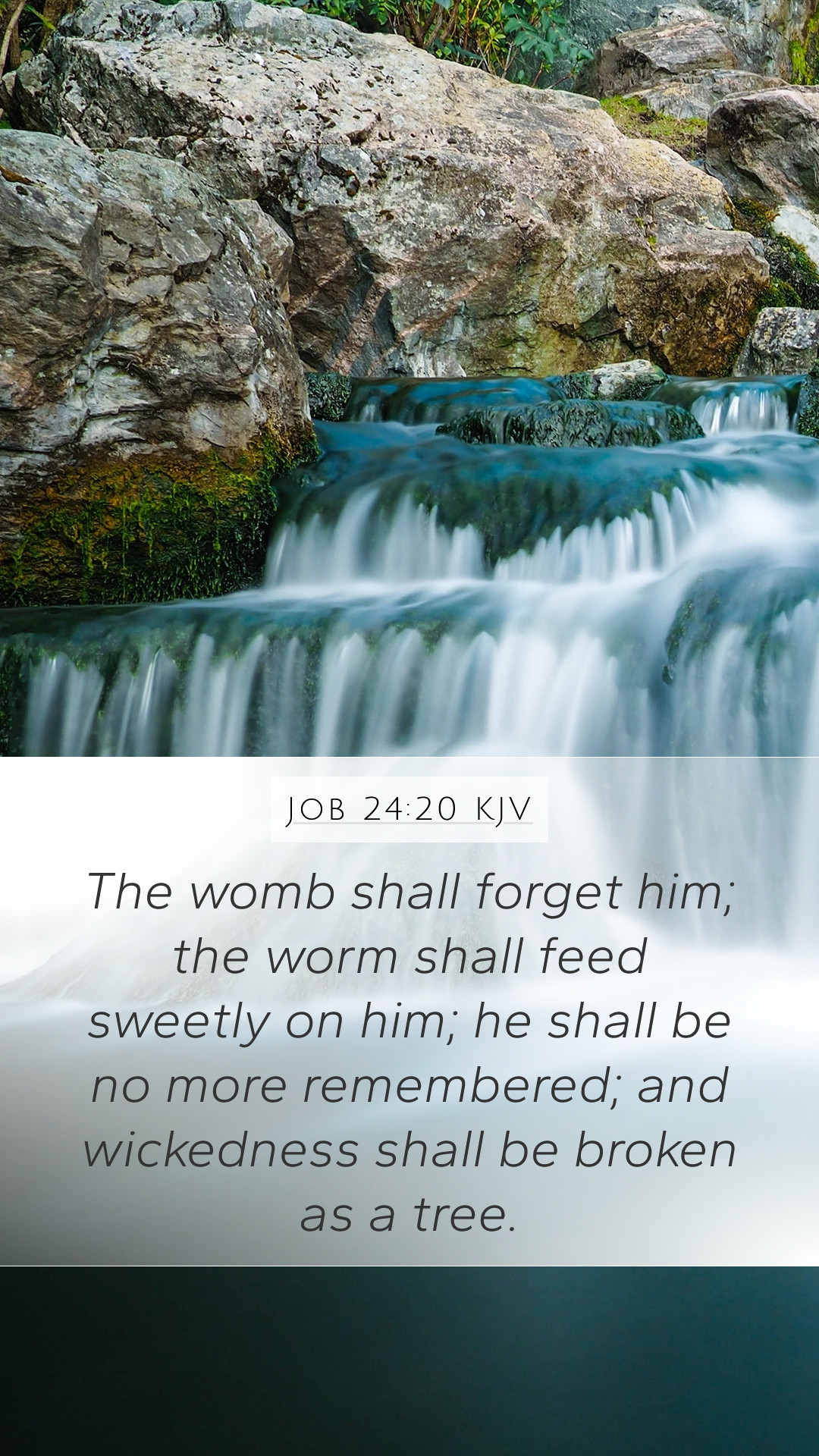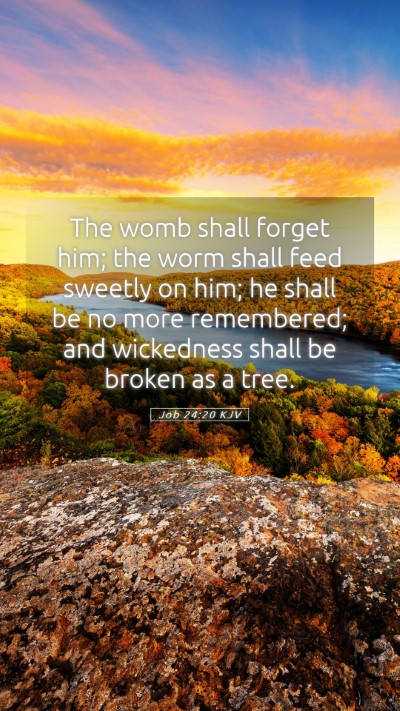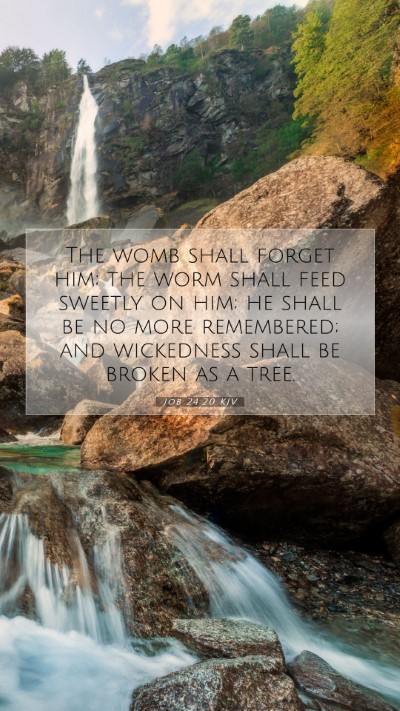Old Testament
Genesis Exodus Leviticus Numbers Deuteronomy Joshua Judges Ruth 1 Samuel 2 Samuel 1 Kings 2 Kings 1 Chronicles 2 Chronicles Ezra Nehemiah Esther Job Psalms Proverbs Ecclesiastes Song of Solomon Isaiah Jeremiah Lamentations Ezekiel Daniel Hosea Joel Amos Obadiah Jonah Micah Nahum Habakkuk Zephaniah Haggai Zechariah MalachiJob 24:20 Meaning
What is the meaning of Job 24:20?
The womb shall forget him; the worm shall feed sweetly on him; he shall be no more remembered; and wickedness shall be broken as a tree.
Job 24:20 Bible Verse Meaning
Bible Verse Meaning and Commentary on Job 24:20
Job 24:20 states: "The womb forgets him; the worm feeds sweetly on him; he shall be no more remembered; and wickedness shall be broken as a tree." This verse reflects Job's contemplation on the transitory nature of life and the ultimate fate of the wicked.
Overview of Job 24:20
This verse is found within a larger discourse where Job is lamenting the apparent prosperity of the wicked and the suffering of the righteous. Verses such as these reveal Job's deep grappling with the justice of God, leading to profound insights about life and death.
Insights from Commentaries
- Matthew Henry's Commentary:
Henry emphasizes the idea that even the most violent and wicked individuals will ultimately face the consequences of their actions. The imagery of the womb forgetting and the body returning to dust stress the inevitability of death and decay. He suggests that life's pleasures are fleeting, and wickedness will eventually perish, just as a tree is cut down.
- Albert Barnes' Commentary:
Barnes interprets this verse as illustrating the finality of death for the wicked. The reference to worms suggests decay and obscurity, emphasizing that a wicked life leads to a forgotten legacy. His analysis points to the moral order of the universe where apparent injustices are rectified in the end.
- Adam Clarke's Commentary:
Clarke elaborates on the metaphorical language of the verse, noting that the ‘worm’ symbolizes the decay of the body and the complete erasure of the wicked's memory from the earth. He reflects on the harsh realities of mortality and the divine justice that underpins life, offering comfort that ultimately righteousness will prevail.
Key Themes in Job 24:20
This verse encompasses several critical themes relevant to biblical study:
- Mortality: The verse brings to light the transient nature of human life, serving as a sobering reminder of our mortality.
- Divine Justice: It poses serious questions about how and when God's justice is realized, particularly in the lives of the wicked.
- The Legacy of Wickedness: The fate of the wicked suggests that wrongdoing may lead to a forgotten existence rather than a significant legacy.
Application of Job 24:20
For those seeking Bible verse meanings or Bible verse interpretations, Job 24:20 serves as a compelling reminder of the values of righteousness and the fleeting nature of earthly life. Believers may find solace in knowing that while the wicked may prosper for a time, justice ultimately prevails, highlighting the significance of living a life aligned with God’s will.
Related Scripture References
- Ecclesiastes 3:19: "For what happens to the children of man and what happens to the beasts is the same; as one dies, so dies the other." This verse echoes the theme of mortality.
- Psalms 37:2: "For they will soon fade like the grass and wither like the green herb." This strengthens the idea of the temporary state of the wicked.
- James 4:14: "You do not know what tomorrow will bring. What is your life? For you are a mist that appears for a little time and then vanishes." This verse reflects on the brevity of life.
For those engaging with this text, it encourages reflections that can lead to profound discussions in Bible study groups, particularly on the pressing issues of justice and mortality.
Conclusion
Job 24:20, through its striking imagery and poignant themes, provides rich soil for Bible study insights. By understanding this verse, readers can grasp the significance of righteous living in a world often overshadowed by injustice. The Bible verse explanation offered here underscores the importance of not only acknowledging the complexity of Scripture but also applying its lessons to daily life.


